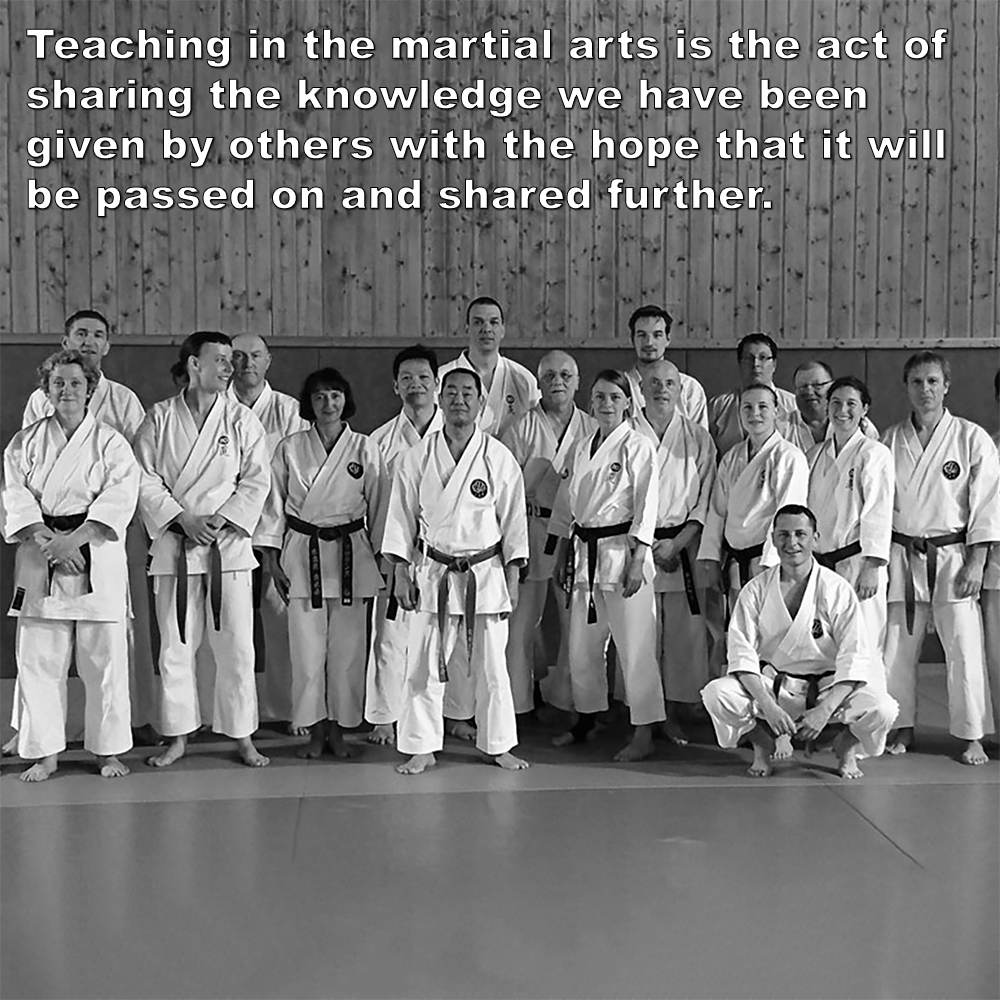
Teaching in the martial arts is the act of sharing the knowledge we have been given by others with the hope that it will be passed on and shared further. It’s a continuous act of giving and receiving, creating a ripple effect through each student guided by a teacher.
.
A teacher’s purpose is to help develop students who are curious, questioning, and forever eager to learn. Teaching is both a science and an art, requiring patience and passion. There’s no greater satisfaction than witnessing a student grow – whether it’s the moment they grasp a new concept or the realization that you’ve played a role in shaping their future.
.
Those of us who teach are more than just instructors; we are mentors, guides, and encouragers. We help students discover their potential, seeing beyond their current abilities to the possibilities of what they can achieve.
.
Teaching involves more than imparting principles, techniques, and kata; it’s also about instilling values, discipline, and a sense of respect for oneself and others. This influence should extend far beyond the dojo, impacting students’ lives in numerous, often intangible ways.
.
A good teacher understands the balance between challenge and support. They push their students to their limits, knowing when to offer a gentle nudge and when to let them struggle and find their own solutions. This balance helps them develop resilience, confidence, and a deep-seated respect for what they are learning.
.
The lessons learned in the dojo often mirror those needed in life, making the role of the teacher one of profound importance. This role is reflected in the lives of students, in how they carry themselves and the values they uphold.
.
Much like learning karate, teaching is also a lifelong commitment – a dedication to the martial arts and to the students who walk through the dojo doors, helping to leave a lasting impact.
.
.
Photo Credit: With Ryozo Tsukada
